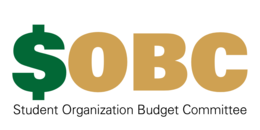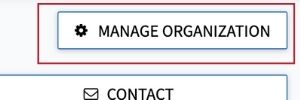Student Organization Funding
On this page:
- About Student Organization Funding
- Funding Opportunities
- Terms and Definitions
- Deadlines for Fall 2024 Funding
- Fund Charts
- Funding Tiers
- Expenditure Guidelines
- Post-Audit Procedures
About Student Organization Funding
Student Involvement and Leadership designates university funding to the Student Organization Budget Committee (SOBC) to encourage campus engagement through student organizations. Funds provided by the SOBC help foster student engagement opportunities and leadership development at Wright State.
Student Organization Budget Committee (SOBC)
About the committee
SOBC is a university committee comprised of students and an advisor that reviews budget requests and makes recommendations to organizations about the amount of funds Wright State University can allot them each semester. Organizations able to request funds from the SOBC are registered and in good standing with Student Involvement and Leadership and have received a Tier II or III classification.
committee members
| Member and Role | Organization/Department Affiliation |
|---|---|
| Ariana Ellis | Director of Inclusive Excellence and Accessibility, Student Government Association and President of Chi Alpha Campus Ministries |
| Selvin Bacon-Velasquez | Committee Member |
| Donnell Smith | Committee Member |
| Angela Allen | Committee Member |
| Austin Wolfe | Committee Member |
| Dylan Collison | Advisor, Accountant 1 |
| Debbie Lamp, Advisor | Associate Director, Student Involvement and Leadership |
Funding Opportunities
Year-long Funding
To access the appropriate budget forms, follow the steps below:
Navigate to the Organization's Engage Page
The organization's Engage page can be found under "Memberships" on the Engage landing page. Organizations must be in good standing with Student Involvement and Leadership to access their Engage page.
Select 'Manage Organization'
The officer or designated member should see "Manage Organization" in the upper-left-hand corner. If this is not visible, the organization's president must grant you access to view management features. Email SIL@wright.edu or call 937-775-5570 to ensure the appropriate member has finance features enabled. The president and treasurer have these features by default.

Select 'Finance'
On the left-hand side, open the dropdown list and select “Finance.” Click the blue gear.
Create Budget Request
In the upper-right-hand corner, click the blue button that says, “Create Request,” and select “Create Budget Request.” Note: there are two separate forms: Tier II and the other for Tier III organizations. Be careful to ensure that the correct form is completed.

Once the deadline has passed, the committee members will meet to decide on hearing dates. Watch your Wright State email for further details. SOBC will then meet and decide on the budget requests. The committee will offer recommendations before the end of the spring semester.
Special Funding Opportunities
Student Involvement and Leadership provides an alternate funding source for one-time activities, events, or programs sponsored by registered student organizations that are not otherwise financially supported by the Student Organization Budget Committee (SOBC).
Terms and Definitions
Submission Periods
Budget submission periods vary based on organization type. Tier II organizations submit a semesterly budget, while Tier III (Coordinating Organizations) submit a yearly budget. Tier I organizations are ineligible for university funding. Dates and timelines will be communicated to the president and treasurer via their Wright State email and Engage.
| Organization Type | Budget Type | Submission Period |
|---|---|---|
| Tier I | SFC |
October 1 each academic school year through March. |
| Tier II |
Semesterly |
Fall Requests: March submission period Spring and Summer Requests: November submission period |
| Tier III | Yearly (SOBC) |
March submission period |
Budget Hearings
While an organization can ask for as much money as they think it will need, the university may not completely fund all projects and materials. For SOBC to better understand budget requests, the committee will ask that those organizations who request more than $5,000 to attend a budget hearing to further explain their events and budget.
Budget hearings for the March submission period will be virtual and no more than 15 minutes each. The hearing is simply a question and answer session so that the committee has a better understand of the organization's needs.
Review and Allocation Process
SOBC will meet after all submissions have been received. The priority will be to review all submissions before the hearings (please see the above paragraph to determine your organization is required to present to SOBC). Once submissions have been reviewed and hearings are over, SOBC will meet over a two-day timeframe to decide all organizations’ budget requests.
If more time is necessary, the committee can decide the next time to meet to continue the work. SOBC reserves the right to make adjustments as needed to align with the university’s allotted budget for student organization funding. SOBC will then provide recommendations to organizations with a semi-approval. If the organization accepts the recommended budget, then the final approval will come from SIL.
For a yearly and fall budget, SIL will allocate funds in August before the academic year. SIL will allot spring and summer budgets before the start of the spring semester. The committee could make adjustments after an organization accepts the recommendation due to changes in the university’s student organization funding budget.
Deadlines for Fall 2024
All budgets are due on Thursday, March 28, 2024, at 11:59 p.m. on Engage.
This semester, organizations are encouraged to attend the workshop ready to build the budget to be submitted. Bring your laptop or tablet and work through the process of properly submitting the budget. We are not suggesting it will only take an hour to create the organization's budget, but we do want organizations to use real information to build the budget. It is suggested to have an organization planning meeting about the organization's activities for the upcoming semester before attending a workshop. Additionally, organizations are encouraged to submit events on Engage for the Fall 2024 semester now.
Hearings for budgets over $5,000 will be scheduled at a later date and will take place on Saturday, April 13 virtually for 15 minutes starting at 9:00 a.m. Please be mindful that someone from your organization needs to present the budget and able to answer questions from the committee.
Training for fall 2024
Training is mandatory to receive funding for Fall 2024. Every organization must have one officer, preferably the treasurer, attend one training. Organizations may choose to send more than one member to training. Members do not need to attend training on the same date. If the person happens to be the treasurer for more than one organization, then the person may represent both organizations at one training. More than one person from an organization is welcome to attend training as well. Trainings are designed to answer questions and assist organizations with the funding application process.
Training dates are all in the Student Involvement and Leadership Center, 190 Student Union. The back of the space by the big television screen. The dates are as follows:
- Monday, March 4 - 10:10 a.m. and 2:30 p.m.
- Tuesday, March 5 - 2:00 p.m.
- Wednesday, March 6 - 5:00 p.m.
- Friday, March 8 - 11:15 a.m.
- Monday, March 11 - 1:30 p.m.
- Tuesday, March 12 - 12:30 p.m.
- Thursday, March 14 - 12:30 p.m.
- Friday, March 15 - 9:05 a.m. and 1:15 p.m.
Questions? Contact Debbie Lamp at debbie.lamp@wright.edu.
Fund Charts
Operational Funds
These funds are intended to assist the organization in day-to-day activities, meetings, development opportunities, and recruitment/marketing. This can also be used for tabling and other recruitment programs. The recommended max column is intended as a guide for the entire academic year.
|
Budget Category |
Budget Pool |
Fundable |
Non-Fundable |
Recommended Max |
|---|---|---|---|---|
|
Advertising |
750000 |
Materials and events used to recruit members, and announce meetings and organizational events including but not limited to t-shirts, banners, posters, flyers, hot cards, ads in The Guardian, newsletters |
T-shirts for members only Uniforms |
$200 |
|
Dues/subscriptions |
750000 |
Membership dues for the organization in its local, state, national, or international organization; subscriptions needed to operate |
Insufficient funds penalties |
$1000 |
|
Equipment/Facility Rental & A/V |
740000 |
Charges for equipment setup, cleanup, and rental of equipment. Audio-visual (A/V) is included in this. |
Charges of non-WSU owned equipment/facilities; expenditures for permanent items which become the property of the organization |
$400 |
|
Food |
740000 |
Recruitment or marketing events |
General meetings, special or recognition dinners for members of the organization, meals when traveling |
$100 |
|
Membership Awards |
750000 |
Plaques, certificates, and non-monetary prizes for recognition of organization members |
Fuel costs or parking fees for organization members |
$100 |
|
Office Supplies |
730000 |
Stationery, pens/pencils, paperclips, and other consumable items needed to conduct business |
Office Equipment (including but not limited to phones, computers, printers, etc.) |
$200 |
|
Paid Leaders |
|
Approved paid positions within the organization |
|
|
|
Travel |
740000 |
Transportation and lodging costs associated with traveling to a membership or leadership retreat, regional or national conference, and/or competition where the purpose of the event aligns with the purpose of the organization; conference registration costs; parking fees or gifts for speakers at organization meetings |
Admission tickets for access to museums or other events in associated travel |
$1000 |
|
Other |
|
Organizations may request funds for operating expenses that do not appear on this list if they are not prohibited; a rationale for inclusion will be required |
Expenditures designed for the financial gain or profit of the organization or individual |
N/A |
Programming Funds
These funds are intended to assist your organization in executing a program on- or off-campus. There is a wide range of event or program ideas that could benefit from this fund type. Priority will be given to those events that are open and available to all WSU students. The recommended max column is intended as a guide per program.
|
Budget Category |
Budget Pool |
Fundable |
Non-Fundable |
Recommended Max |
|---|---|---|---|---|
|
Apparel |
750000 |
Costs associated with apparel for the publicizing of a program; Costs associated with apparel for all attendees, participants, or volunteers at a program |
General apparel for the organization members, costume purchases; Apparel sold as a fundraiser |
$500 |
|
Consumable Supplies |
730000 |
Costs associated with consumable supplies not available for free at the university including but not limited to decorations, paper goods, plastic cutlery, flowers, the printing of tickets for a program |
Costumes, props, etc.; Tickets purchased for a program; Purchase of a permanent photo booth |
$100 |
|
Professional Entertainment |
710000 |
DJ, speaker, artist, rental of a licensed copy of the film or other entertainment media, etc. |
Rental costs for non-licensed copies of films |
$3,000 |
|
Disc Jockey |
710000 |
Disc Jockey for entertainment. |
|
$300 |
|
Equipment/Facility & A/V |
740000 |
Charges for equipment setup, cleanup, and rental of equipment. Audiovisual (A/V) is included in this. |
Charges, including rental, of non-WSU owned facilities; Purchase of equipment or electronics |
$200 |
|
Food & Beverage |
740000 |
Costs associated with providing food and beverage at a program. |
Pepsi and Chartwells statement here |
$500 |
|
Giveaways |
750000 |
Prizes or raffles given to participants during or after the event. Participants who receive a prize must fill out a prize form |
Cannot be given to organization members |
$1000 |
|
Publicity |
750000 |
Costs for publicizing a program with banners, posters, flyers, hot cards, ads in the Guardian, newsletters |
|
$100 |
|
Travel |
750000 |
Transportation or lodging costs associated with a particular organization event; compensation for the entertainment at events |
Events are only for organization members. Seniors should not be traveling unless they would be staying and contributing to the organization throughout graduate school. |
$500 |
Funding Priorities
The Student Organization Budget Committee prioritizes different sections of budgeting requests submitted by student organizations. Here is how we prioritize each section of your budget!
The priority budget sections below show which expenses the committee values as the most important for funding. Priority one is the most important and priority three is the least important sections of the budget to fund.
|
Priority One |
Priority Two |
Priority Three |
|---|---|---|
|
Paid Leaders |
Consumable Supplies |
Apparel |
|
Maintenance & Repairs |
Food and Beverage |
Travel |
|
Equipment/Facility Rental & A/V |
Publicity |
Dues/Subscriptions |
|
Disc Jockeys |
Office Supplies |
Miscellaneous |
|
Professional Entertainment |
Advertising |
|
Expenditure Guidelines
The following are not fundable through SOBC or SFC.
- SOBC does not fund expenditures designed for the financial gain or profit of the student organization.
- Support or sponsor ballot initiatives or for any partisan political purposes
- Support or sponsor political lobbying, including Student Government elections
- Support religious rites, services, or attempts to convert people to a particular religious faith
- Provide financial support to off-campus organizations whose principal purposes are political, religious, or ideological in nature.
- Purchase alcohol or any product that violates university policy.
- Establish petty cash funds
- Pay individual membership dues
- Purchase personal clothing items (T-shirts, jackets, hats, etc.). Exceptions may be made if the request benefits a broad number of WSU students.
- Pay tuition, general fees, fines, parking passes
- Reimbursements – DO NOT SPEND YOUR OWN MONEY FIRST
- State sales tax
Travel
Funding for travel is very limited. If funding is granted, funds for travel will be approved only when members of the organization will:
- represent the university and thereby enhance the prestige of the university and the organization
- gain knowledge and experience in accordance with the goals and the purpose of the organization
- fulfill responsibilities in accordance with the goals and purposes of the organization
Any requests for funds for travel to conferences or workshops must be accompanied by printed materials (most
current) to explain the program. These materials must be printed by the sponsoring local or national organization and
not self-generated by the student group. It is assumed such travel will be funded only for underclassmen. Money will only be granted for food if the meal costs are incorporated into a conference registration fee or as part of a university-wide event. SOBC will only fund travel if a commercial carrier or university vehicle is used. All travel must comply with university guidelines.
Post-Audit Procedures
Tier II Organization Allocations
When a Tier II organization accepts funds from SOBC, the organization also agrees to submit a post-audit towards the end of the semester. Tier III organizations are not required to submit a post-audit. Tier II organizations use university agency (999XXX) funds, whereas Tier III organizations use a university general ledger for accounting purposes.
If you are unsure of your organization’s tier status, email SIL@wright.edu or call 937-775-5570. This audit assists the SIL office in making sure the funds were utilized and in an appropriate manner. SOBC will send out specific dates via email and through Engage and on this webpage.
Fall 2023 Post Audits are due Friday, December 1, 2023 and Spring 2024 Post Audits are due Friday, April 5, 2024.
Post-Audit Form
Please ensure that you follow all instructions on the post-audit form, including all appropriate approvals. Post-audit forms are due for Spring Semester 2024 on April 5 at 5 p.m. This means ALL purchases for the rest of the semester should be completed by April 5, 2024.


